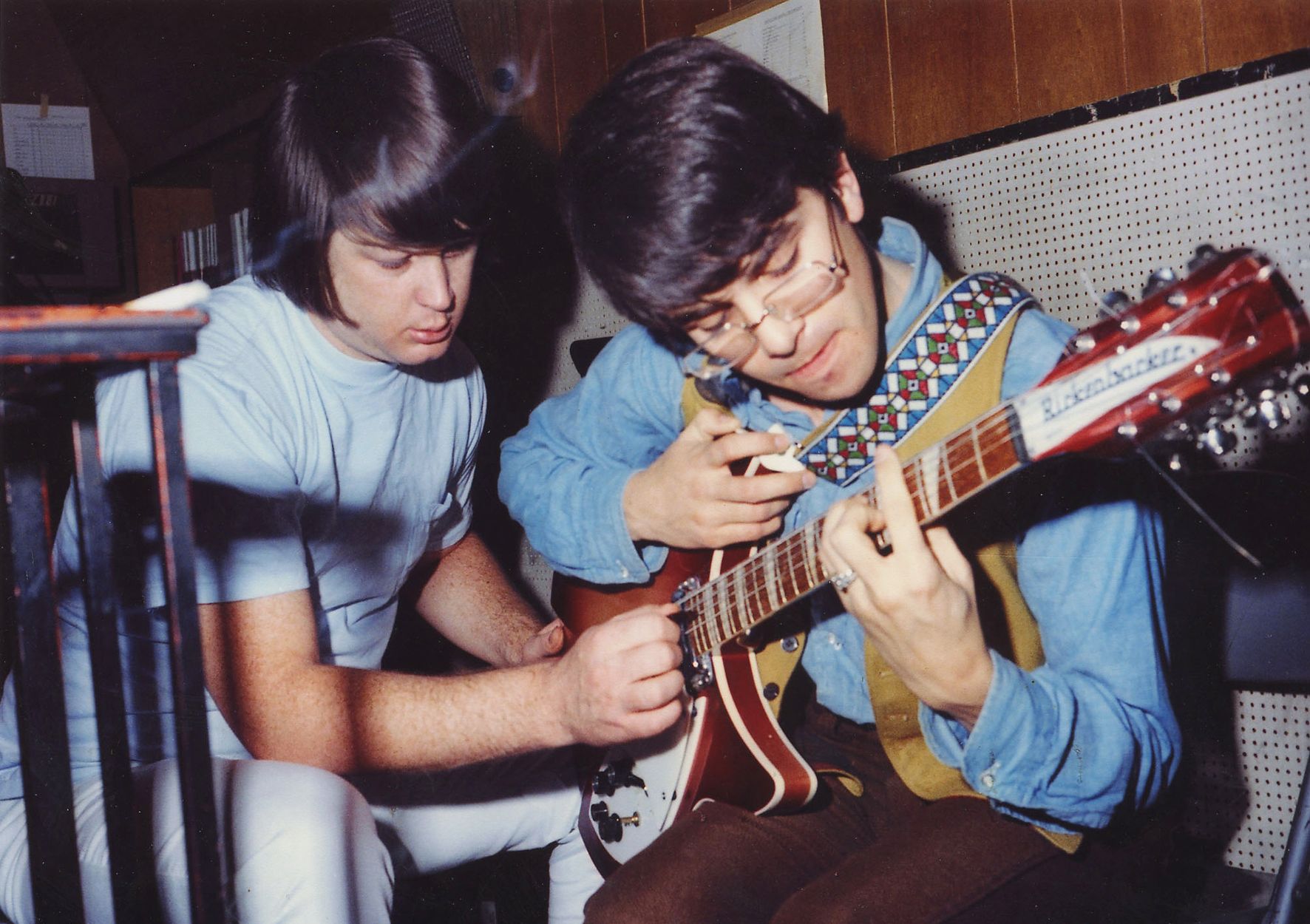Have you ever stopped to think about how much a name can carry? It's really quite something, isn't it? A name isn't just a label; it often holds centuries of history, a bit of cultural flavor, and even a special meaning. When we hear a name like Phillip Van Dyke, it just sort of rolls off the tongue, and you might wonder about the stories behind it. This article is going to take a closer look at the name Phillip, a name that has been around for a very, very long time, and think about the kind of legacy it brings to anyone who carries it, including, you know, individuals like a Phillip Van Dyke. We'll explore its deep roots and the significant figures who have borne it, giving us a clearer picture of its lasting impact.
It's fascinating, actually, how names can connect us to the past. The name Phillip, for instance, has a truly rich background, reaching back thousands of years. It’s a masculine name that has always been traditionally given to baby boys, and it holds a strong, powerful meaning attached to it. This isn't just any name; it's one that has seen countless generations and has been shared by a fair few historical figures who really left their mark on the world. So, in a way, carrying this name is like being part of a very long and distinguished line.
So, as we consider the name Phillip, and by extension, someone named Phillip Van Dyke, we're not just talking about a simple combination of sounds. We're talking about a name that means "friend of horses," a name that has been linked to apostles, royalty, and ancient rulers. It's a name that speaks of a certain spirit, a connection to something ancient and strong. It's quite a lot to think about, isn't it, how much history and meaning can be packed into just a few syllables? This exploration will certainly shed some light on why this name continues to resonate.
Table of Contents
- The Enduring Story of the Name Phillip
- A Name with Deep Roots and Meaning
- Historical Figures Who Shaped the Name Phillip
- Phillip: A Name of Enduring Popularity and Spirit
- Frequently Asked Questions About the Name Phillip
The Enduring Story of the Name Phillip
When we look at the name Phillip, or Philip, it's pretty clear that it has an incredibly long and interesting story. It’s a name that has traveled through time, from ancient civilizations right up to today. This masculine name, which is traditionally given to baby boys, holds significance dating back thousands of years, which is quite remarkable when you think about it. It’s not just a passing trend; it’s a name that has truly stood the test of time, showing a kind of timeless appeal that very few names possess. You know, it's almost like a living piece of history, always evolving but always keeping its core essence.
The name Phillip, you see, is a spelling variation of the name Philip, and both forms share the same rich heritage. This name was actually quite popular in ancient Greece, which is where its journey truly begins. It was shared by several historical figures, including Philip II of Macedon, a rather powerful ruler, and of course, his son, Alexander the Great, who also carried a form of the name. So, right from the start, this name was linked to leadership and influence. It’s quite something to consider how many important people have borne this name throughout history, making it a name that really carries a lot of weight and a sense of importance.
So, for anyone named Phillip Van Dyke, or any Phillip for that matter, there's this incredible tapestry of history woven into their very identity. The name isn't just a sound; it's a connection to a past filled with significant events and notable individuals. It's a name that, in a way, hints at a certain strength and a lasting presence. This deep historical connection is what gives the name its enduring charm and why it continues to be chosen by parents all over the world. It’s a powerful legacy, really, when you think about it, and it just keeps on going.
A Name with Deep Roots and Meaning
The true heart of the name Phillip lies in its Greek origins. It comes from the Greek name φίλιππος (philippos), which has a rather beautiful and descriptive meaning: "friend of horses." This meaning is composed of two distinct elements, each contributing to the name's overall charm. There's φίλος (philos), which basically means friend or lover, suggesting a deep affection or connection. Then, we have ἵππος (hippos), which is the Greek word for horse. So, when you put these two elements together, you get this wonderful image of someone who truly appreciates and connects with these magnificent creatures. It’s a very evocative meaning, isn’t it?
This meaning, "friend of horses," is quite significant. Horses, historically, have been symbols of strength, loyalty, freedom, and nobility. So, to be a "friend of horses" implies a person who might possess some of these very qualities or someone who is seen as a companion to such powerful beings. It's a meaning that, in some respects, suggests a certain character—perhaps someone dependable, adventurous, or even spirited. This ancient meaning is a core part of the name's identity and has resonated through the ages, giving it a kind of timeless appeal. It's not just a name; it's a little bit of poetry.
When we think about a name like Phillip Van Dyke, knowing this origin adds another layer of depth. It means that anyone bearing the name Phillip carries this ancient connection to horses, a symbol of grace and power. It's a name that, you know, hints at a certain kind of personality, perhaps someone with a love for the outdoors, or someone who is strong and reliable. The etymology of a name, as a matter of fact, can tell us so much about its cultural significance and why it has remained popular for so long. It's more than just sounds; it's history in a word.
Historical Figures Who Shaped the Name Phillip
The name Phillip has been carried by some truly iconic figures throughout history, each one adding to its remarkable legacy. One of the most prominent is Philip the Apostle, who, according to the New Testament, was one of the Twelve Apostles of Jesus. Later Christian traditions describe him in various ways, but his role as a follower of Jesus solidified the name's early religious significance. Luke shows us how Philip was known as a man who followed the spirit, the central power needed to be witnesses and preach the gospel. As such a man, Philip became a powerful witness of faith, which is quite a significant association for any name to have.
Then, of course, there's Prince Philip, Duke of Edinburgh, a very well-known modern figure. He was the husband of Queen Elizabeth II, the father of King Charles III, and the grandfather of Prince Harry and Prince William. Prince Philip was known for his long life of public service and his dedication to the monarchy. People often wonder what he was known for, how he became famous, what his education was like, and what his family was like. His life story, filled with duty and commitment, really added a contemporary layer to the name's historical importance. It’s a name, apparently, that seems to attract roles of great responsibility and public prominence.
Beyond these, the name was also shared by powerful rulers like Philip II of Macedon, a historical figure who played a crucial role in ancient Greek history, laying the groundwork for his son Alexander the Great's vast empire. These historical occurrences really show the name's widespread influence and its connection to leadership, faith, and enduring public life. So, when you hear the name Phillip, or consider someone like a Phillip Van Dyke, you're tapping into a very rich vein of history, a name that has truly seen it all and been borne by individuals who left an indelible mark on the world. It’s a name that, quite simply, has a story to tell.
Phillip: A Name of Enduring Popularity and Spirit
Phillip, as a boy's name, has certainly maintained a steady presence over the years, proving its lasting appeal. It’s a name of Greek origin, as we've seen, meaning "lover of horses," and this strong, powerful meaning has definitely contributed to its continued use. While names can fluctuate in popularity, Phillip has remained a consistent choice for many families. It's currently ranked as the 626th most popular male name, which shows it's still very much in circulation, even if it's not at the very top of the charts. That's actually a pretty respectable standing for a name with such a long history.
The enduring appeal of Phillip probably comes from its classic sound and its rich historical associations. It's a name that feels both traditional and yet, in a way, still fresh. It doesn't feel overly trendy or dated, which is a hard balance to strike. People who choose this name might be drawn to its strong meaning or its connection to notable figures, hoping to pass on a sense of history and character. It’s a name that, you know, just feels solid and dependable, like a good friend.
Moreover, the name Phillip is often associated with a certain kind of spirit. As mentioned earlier, Luke shows us how Philip the Apostle was known as a man who followed the spirit, the central power needed to be witnesses and preach the gospel. This suggests a connection to intuition, guidance, and a deep inner strength. So, for anyone named Phillip, including a Phillip Van Dyke, there's this underlying sense of being guided or having a clear purpose. It’s a name that, in some respects, whispers of a journey, of following one's true path, and of being a witness to something important. It's really quite a profound association for a name to carry.
Frequently Asked Questions About the Name Phillip
When people think about the name Phillip, or Philip, a few common questions often pop up, reflecting a general curiosity about its history and meaning. Here are some of those thoughts, exploring what makes this name so interesting.
What is the meaning behind the name Phillip?
Basically, the name Phillip comes from the Greek word "philippos," which means "friend of horses." It's composed of "philos," meaning friend or lover, and "hippos," meaning horse. So, it's a name that really connects to



